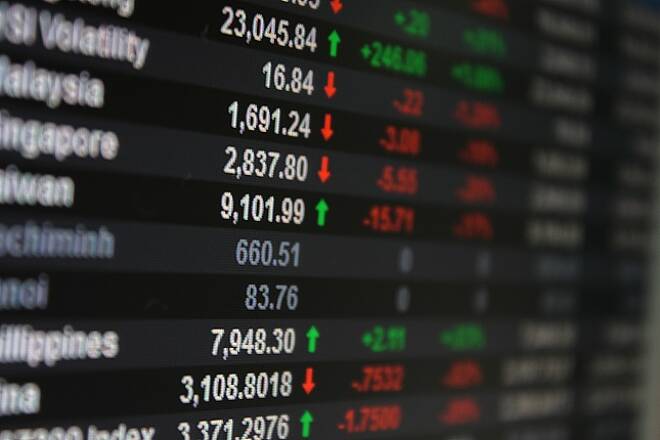Advertisement
Advertisement
Markets Gripped by Trade Jitters, Sterling Extends Losses
By:
Risk sentiment was punctured further by worries over escalating trade tensions between the world’s two largest economies, and emerging market weakness.
The trading month of September got off to a jittery start after weekend US-Canada trade talks concluded with no deal.
Risk sentiment was punctured further by worries over escalating trade tensions between the world’s two largest economies, and emerging market weakness. Fears over a full-blown trade war are likely to flare up this week if Donald Trump goes ahead with imposing tariffs on another $200 billion worth of Chinese goods. With Beijing expected to fight back with tariffs on $60 billion worth of US goods, “risk-off” may remain the name of the game as intensifying US-China trade tensions raise concerns about slowing global growth.
A couple of major emerging market currencies have tumbled into the new trading month following a brutal selloff last week, led by sharp declines in the Turkish Lira and Argentina Peso. The Indonesian Rupiah slumped to its weakest level in more than 20 years, while the South African Rand shed 1% against the Greenback. Buying sentiment towards the Lira deteriorated further following reports that the nation’s inflation rate climbed almost 18% in August, more than triple the central bank’s 5% target. Interestingly, the Chinese Yuan stood out from the pack by appreciating against the Dollar despite a lower official fixing by the People’s Bank of China (PBoC).
Emerging market currencies could be destined for further pain if the turmoil in Turkey and Argentina intensifies. The combination of global trade tensions, a stabilizing US Dollar, and prospects of higher US interest rates may ensure EM currencies remain depressed in the short to medium term.
The British Pound depreciated sharply against the Dollar after Brexit negotiator Michel Barnier warned that he “strongly” disagreed with key parts of the UK’s Brexit proposal. Sellers have gifted another opportunity to attack the Pound lower following reports that the UK manufacturing sector expanded at the weakest pace in more than two years in August. With Sterling bombarded by Brexit related uncertainty and disappointing economic data, the outlook remains tilted to the downside.
Across the Atlantic, the Dollar found support in the form of safe-haven demand as prolonged US-China trade tensions stimulated risk aversion. In regards to the technical picture, the Dollar Index has scope to challenge 95.50 as long as bulls can maintain control above 95.00.
In the commodities arena, Gold’s subdued price action suggests that the yellow metal may be searching for a fresh directional catalyst to make the next big move. The fact that appetite for Gold is currently muted despite global trade tensions weighing on sentiment continues to highlight how the metal remains influenced by the Dollar’s performance. The technical picture illustrates how significant the $1200 psychological level is on the daily charts. Sustained weakness below this level could open a path towards $1185. Alternatively, if $1200 proves a strong support level, prices could venture towards $1213.
Disclaimer: The content in this article comprises personal opinions and should not be construed as containing personal and/or other investment advice and/or an offer of and/or solicitation for any transactions in financial instruments and/or a guarantee and/or prediction of future performance. ForexTime (FXTM), its affiliates, agents, directors, officers or employees do not guarantee the accuracy, validity, timeliness or completeness, of any information or data made available and assume no liability as to any loss arising from any investment based on the same.
About the Author
Lukman Otunugaauthor
Lukman Otunuga is a research analyst at FXTM. A keen follower of macroeconomic events, with a strong professional and academic background in finance, Lukman is well versed in the various factors affecting the currency and commodity markets.
Advertisement
